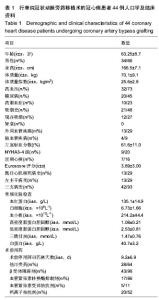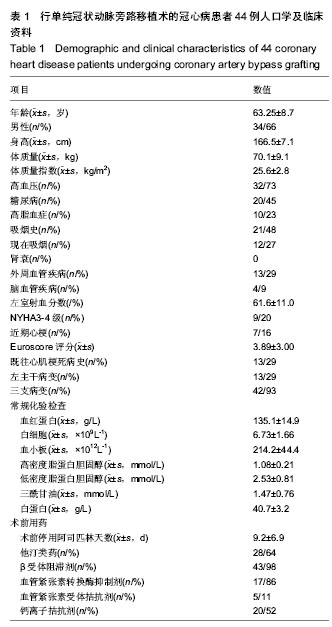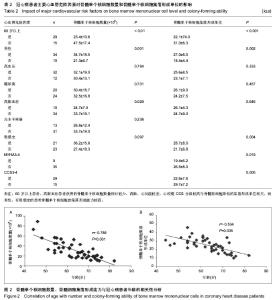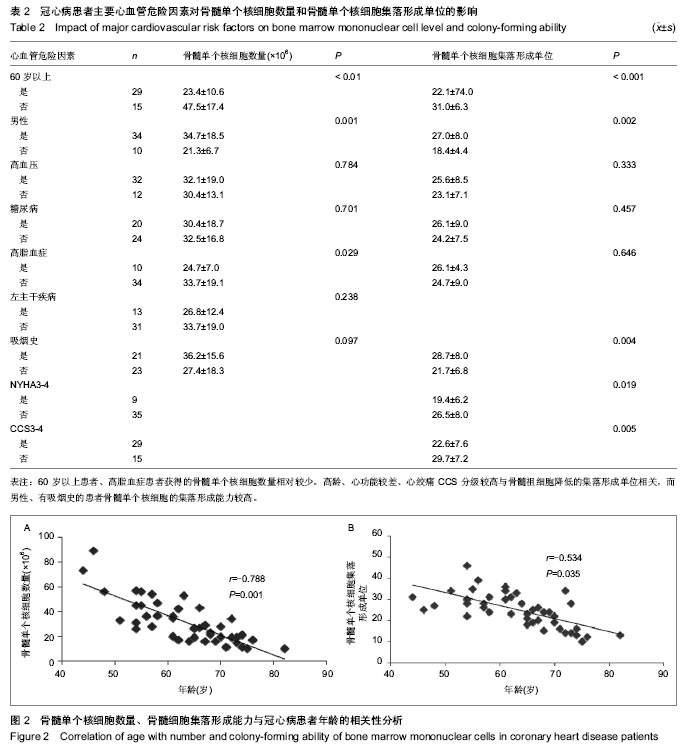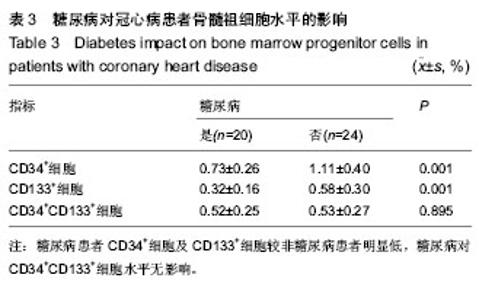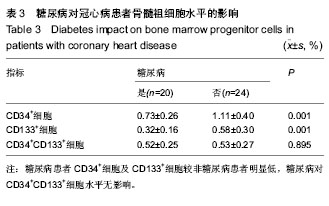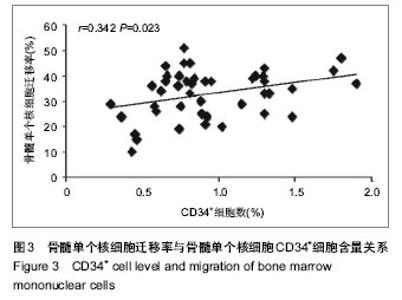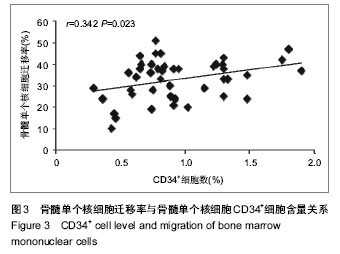| [1] Abdel-Latif A, Bolli R, Tleyjeh IM,et al. Adult bone marrow-derived cells for cardiac repair: a systematic review and meta-analysis.Arch Intern Med. 2007;167(10):989-997.[2] Donndorf P, Kundt G, Kaminski A,et al. Intramyocardial bone marrow stem cell transplantation during coronary artery bypass surgery: a meta-analysis.J Thorac Cardiovasc Surg. 2011;142(4):911-920. [3] Lunde K, Solheim S, Aakhus S,et al.Intracoronary injection of mononuclear bone marrow cells in acute myocardial infarction.N Engl J Med. 2006;355(12):1199-1209.[4] Ang KL, Chin D, Leyva F,et al. Randomized, controlled trial of intramuscular or intracoronary injection of autologous bone marrow cells into scarred myocardium during CABG versus CABG alone.Nat Clin Pract Cardiovasc Med. 2008;5(10): 663-670. [5] Meyer GP, Wollert KC, Lotz J,et al. Intracoronary bone marrow cell transfer after myocardial infarction: eighteen months' follow-up data from the randomized, controlled BOOST (BOne marrOw transfer to enhance ST-elevation infarct regeneration) trial.Circulation. 2006;113(10):1287-1294.[6] Quyyumi AA, Waller EK, Murrow J,et al. CD34(+) cell infusion after ST elevation myocardial infarction is associated with improved perfusion and is dose dependent.Am Heart J. 2011; 161(1):98-105. [7] Shim WS, Tan G, Gu Y,et al.Dose-dependent systolic contribution of differentiated stem cells in post-infarct ventricular function.J Heart Lung Transplant. 2010;29(12):1415-1426. [8] Wolf D, Reinhard A, Seckinger A,et al. Dose-dependent effects of intravenous allogeneic mesenchymal stem cells in the infarcted porcine heart.Stem Cells Dev. 2009;18(2):321- 329. [9] Biancari F, Vasques F, Mikkola R,et al.Validation of EuroSCORE II in patients undergoing coronary artery bypass surgery.Ann Thorac Surg. 2012;93(6):1930-1935.[10] Sun L, Zhang T, Lan X,et al. Effects of stem cell therapy on left ventricular remodeling after acute myocardial infarction: a meta-analysis.Clin Cardiol. 2010;33(5):296-302.[11] Stamm C, Westphal B, Kleine HD,et al. Autologous bone-marrow stem-cell transplantation for myocardial regeneration.Lancet. 2003;361(9351):45-46.[12] Wollert KC, Meyer GP, Lotz J,et al. Intracoronary autologous bone-marrow cell transfer after myocardial infarction: the BOOST randomised controlled clinical trial.Lancet. 2004; 364(9429):141-148.[13] Lipinski MJ, Biondi-Zoccai GG, Abbate A,et al. Impact of intracoronary cell therapy on left ventricular function in the setting of acute myocardial infarction: a collaborative systematic review and meta-analysis of controlled clinical trials.J Am Coll Cardiol. 2007;50(18):1761-1767.[14] Zhao Q, Sun Y, Xia L,et al.Randomized study of mononuclear bone marrow cell transplantation in patients with coronary surgery.Ann Thorac Surg. 2008;86(6):1833-1840.[15] Povsic TJ, Zhou J, Adams SD,et al.Aging is not associated with bone marrow-resident progenitor cell depletion.J Gerontol A Biol Sci Med Sci. 2010;65(10):1042-1050. [16] Bai Y, Sun T, Ye P.Age, gender and diabetic status are associated with effects of bone marrow cell therapy on recovery of left ventricular function after acute myocardial infarction: a systematic review and meta-analysis.Ageing Res Rev. 2010;9(4):418-423. [17] Vöö S, Dunaeva M, Eggermann J,et al. Diabetes mellitus impairs CD133+ progenitor cell function after myocardial infarction.J Intern Med. 2009;265(2):238-249. [18] Li TS, Furutani A, Takahashi M,et al.Impaired potency of bone marrow mononuclear cells for inducing therapeutic angiogenesis in obese diabetic rats.Am J Physiol Heart Circ Physiol. 2006;290(4):H1362-1369.[19] van Ramshorst J, Bax JJ, Beeres SL,et al.Intramyocardial bone marrow cell injection for chronic myocardial ischemia: a randomized controlled trial.JAMA. 2009;301(19):1997-2004.[20] Lehrke S, Mazhari R, Durand DJ,et al. Aging impairs the beneficial effect of granulocyte colony-stimulating factor and stem cell factor on post-myocardial infarction remodeling.Circ Res. 2006;99(5):553-560. [21] Heeschen C, Lehmann R, Honold J,et al. Profoundly reduced neovascularization capacity of bone marrow mononuclear cells derived from patients with chronic ischemic heart disease.Circulation. 2004;109(13):1615-1622.[22] Li TS, Kubo M, Ueda K,et al.Identification of risk factors related to poor angiogenic potency of bone marrow cells from different patients.Circulation. 2009;120(11 Suppl):S255-261. [23] Herbrig K, Pistrosch F, Oelschlaegel U,et al.Increased total number but impaired migratory activity and adhesion of endothelial progenitor cells in patients on long-term hemodialysis.Am J Kidney Dis. 2004;44(5):840-849.[24] Haller H, de Groot K, Bahlmann F,et al.Stem cells and progenitor cells in renal disease.Kidney Int. 2005;68(5): 1932-1936.[25] Hu S, Liu S, Zheng Z,et al. Isolated coronary artery bypass graft combined with bone marrow mononuclear cells delivered through a graft vessel for patients with previous myocardial infarction and chronic heart failure: a single-center, randomized, double-blind, placebo-controlled clinical trial.J Am Coll Cardiol. 2011;57(24):2409-2415. |
